Have you ever seen a dog that just exudes regal charm and quiet strength? …
If you’re thinking of the Akita, you’re spot on! 🤩
These incredible dogs, with their curled tails and dignified presence, have captured hearts worldwide, especially after the touching story of Hachiko.
But there’s so much more to these amazing canines than just loyalty…
Let’s dive into the fascinating world of the Akita with a review of the excellent Animal Planet video (video can be found at the bottom of this article) and discover what makes them so special, shall we? 😉
📜 A Tale of Two Akitas: Unveiling the Breed’s Origins

Did you know that Japan, surprisingly, didn’t always have large dog breeds? 🤔
It all started in the mountainous Akita region of Japan way back in 1603.
Initially, there were medium-sized dogs called Akita Mataji, and these pups were quite versatile…
They were used for dog fighting 😠 and, believe it or not, even for bear hunting! 😲
Talk about brave!
This need for a stronger, more powerful dog eventually led to the Akita we recognize today.
💪 From Fighters to Friends: The Akita Transformation
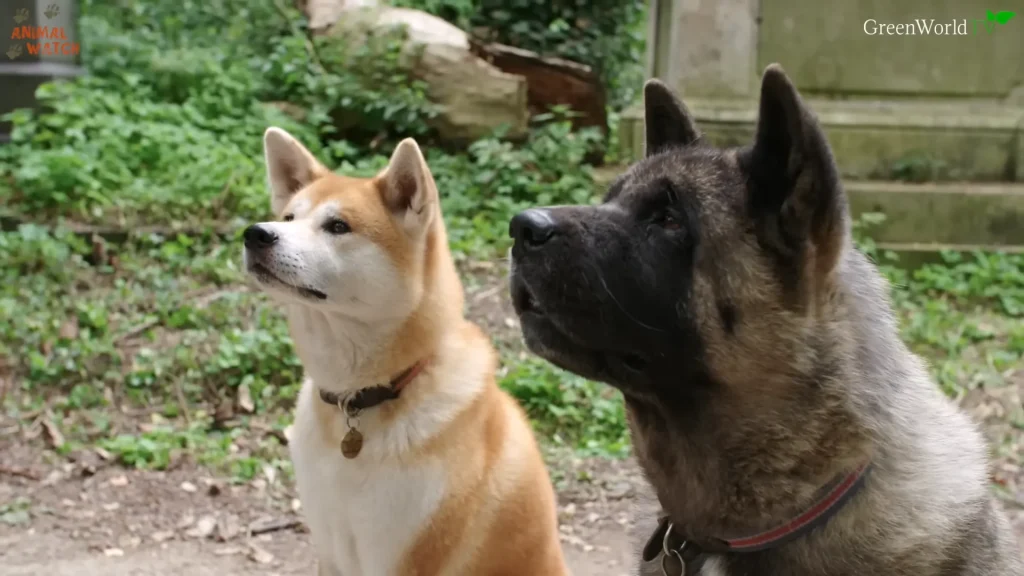
The Akita breed evolved significantly over time…
In 1868, breeders mixed in Mastiff and Tosa blood to make them bigger and tougher for fighting.
Later on, German Shepherd blood was added, supposedly to help them withstand colder climates during wartime.
Interestingly, this mix led to the development of the “American Akita” type, which is popular in the USA.
However, in Japan, this type isn’t as favored due to its mixed heritage…
They prefer the Japanese Akita Inu, considered the “true” Akita, especially after World War II when Japan focused on carefully breeding them back to their original type, without the Mastiff, Tosa, or German Shepherd influence.
🐕🦺 Spotting the Difference: Japanese Akita Inu vs. Akita
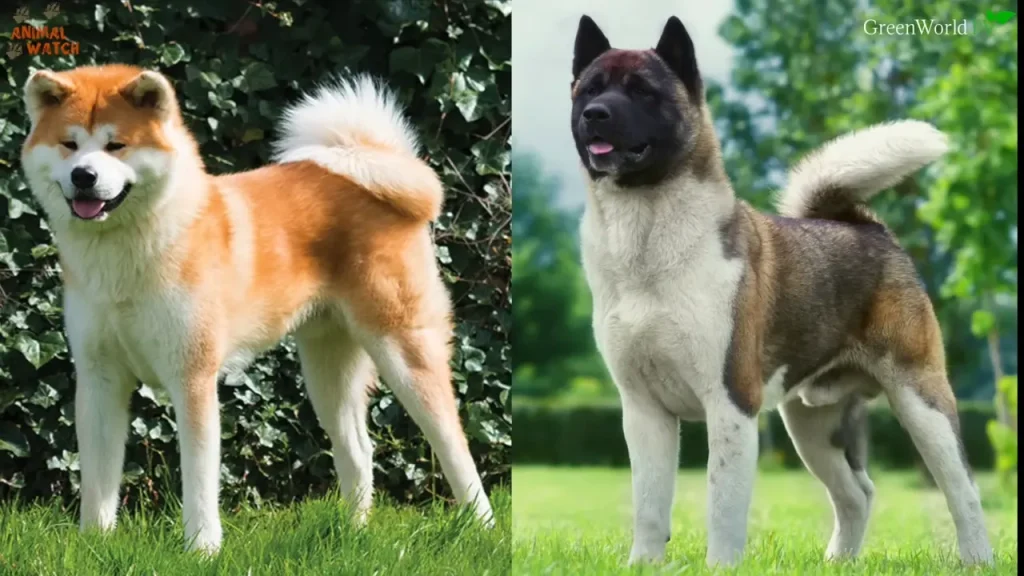
It’s actually quite eye-opening to see the two types side-by-side…
The Japanese Akita Inu is often described as smaller, more foxy-faced, and delicate-looking.
On the other hand, the Akita (often referred to as the American Akita outside of Japan) tends to be larger and heavier.
To really get a feel for these differences, let’s hear from an expert!
We’re about to meet Robert, a proud owner of both an Akita and a Japanese Akita Inu.
This will give us a fantastic chance to see their similarities and, more importantly, their differences up close! 👀
🤝 Meeting Kim & Flora: Two Beautiful Akitas, Two Distinct Personalities
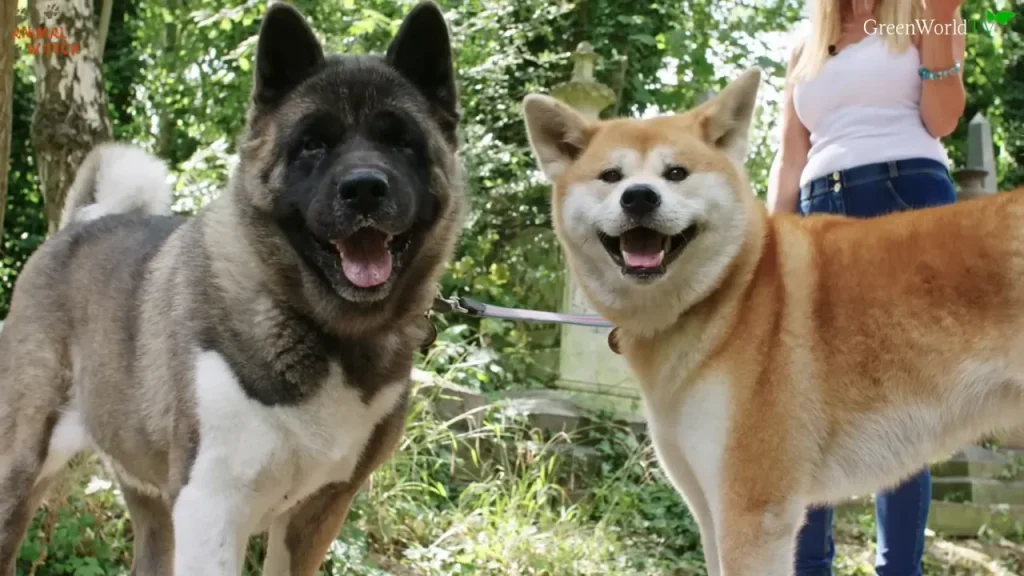
“Well, the excited one is Kim, and she’s a Japanese Akita Inu,” Robert introduces us.
“And the slightly larger one next to you, that’s Flora, and she’s an Akita.“
Wow, they truly are stunning! 😍
It’s immediately clear how different they are, just as described…
Robert points out, “Most people think there’s just one type of Akita, but there are actually two!”
And what better place to meet these majestic breeds than in a beautiful, historic location?
We’re in Abney Park, a gorgeous graveyard in the heart of London. 🌳
🤔 Temperament Truths: Are Akitas Really Snappy?
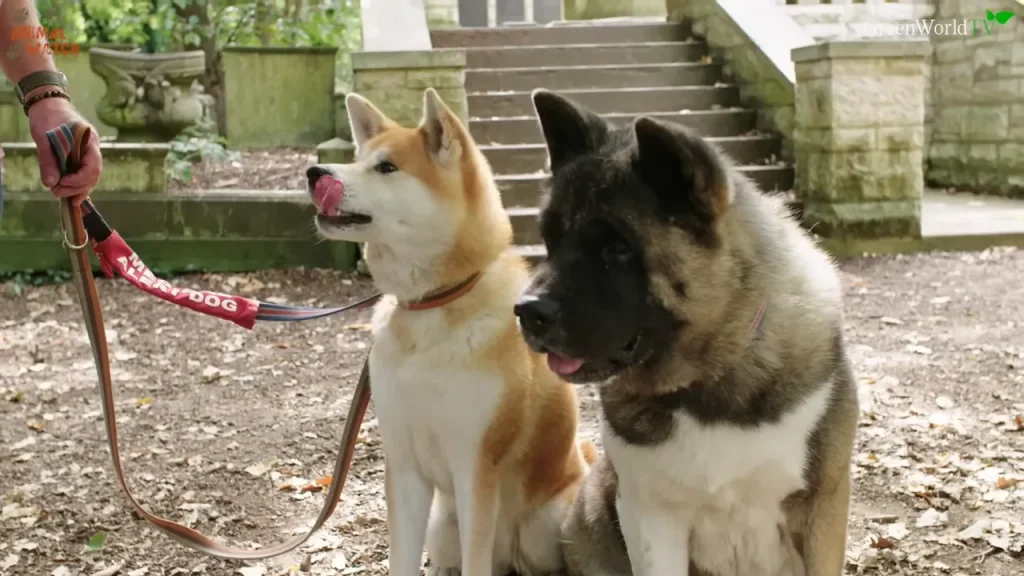
Now, let’s tackle a common misconception…
Are Akitas snappy or aggressive?
Looking at gentle Flora, it’s hard to believe! 🥰
Robert reassures us, “Look how gentle Flora is.”
But it’s important to understand their true temperament…
Akitas are often described as aloof, independent, and even a bit self-willed.
They were originally bred as protectors for royalty and nobles in Japan, which explains their dignified and somewhat reserved nature.
Different colored collars even signified their rank! 👑
Let’s get to the heart of the matter…
Robert sets the record straight about their temperament:
“All the words used to describe the Akita… are pretty accurate.”
They are aloof, standoffish, and possess a strong guarding instinct and prey drive.
Remember, they were bred to hunt bears, boars, and stags! 🐻
This means they aren’t ideal for first-time dog owners.
Are they stubborn, though?
Robert isn’t so sure…
He believes they are “hyper-intelligent” and think “so far outside the box” that sometimes, we humans struggle to keep up! 🤯
Training an Akita keeps you on your toes, that’s for sure! Like many primitive breeds, they need to know “what’s in it for me” during training.
🐾 Reactivity & Dominance: Understanding Akita Behavior
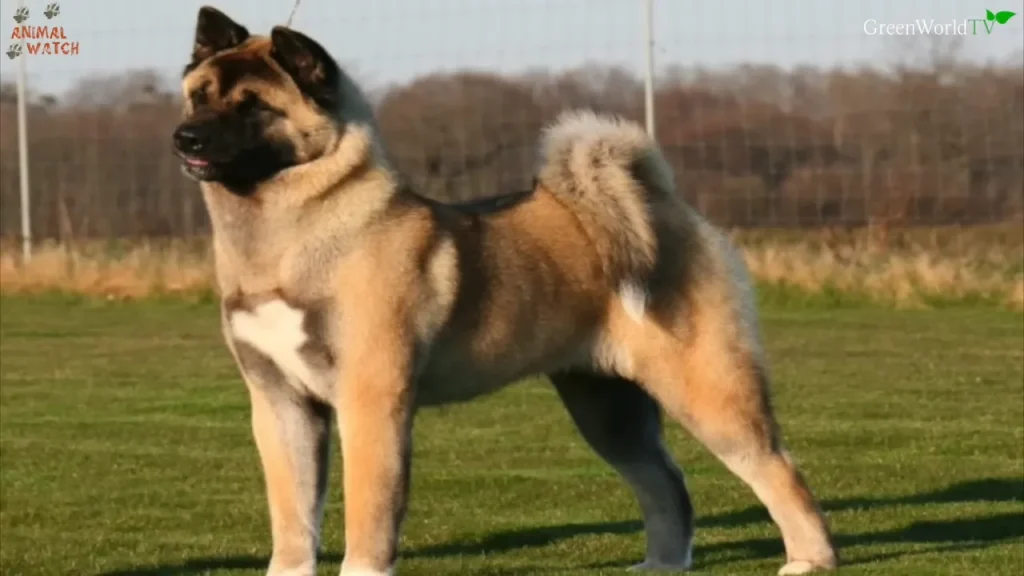
It’s true that Akitas can have a “short fuse” due to their high prey drive, which can contribute to reactivity.
Robert explains, “If a dog came running up to most Akitas, they will react.”
He uses a great analogy: imagine a stranger running up and hugging you – it would be startling! 😳
Akitas feel the same way about unknown dogs approaching too quickly.
Furthermore, their body language screams dominance: pricked ears, long snout, flat topline, and curled tail all contribute to this impression.
But is there a temperament difference between the Akita and Japanese Akita Inu?
💖 Temperament Differences & Same-Sex Akita Households
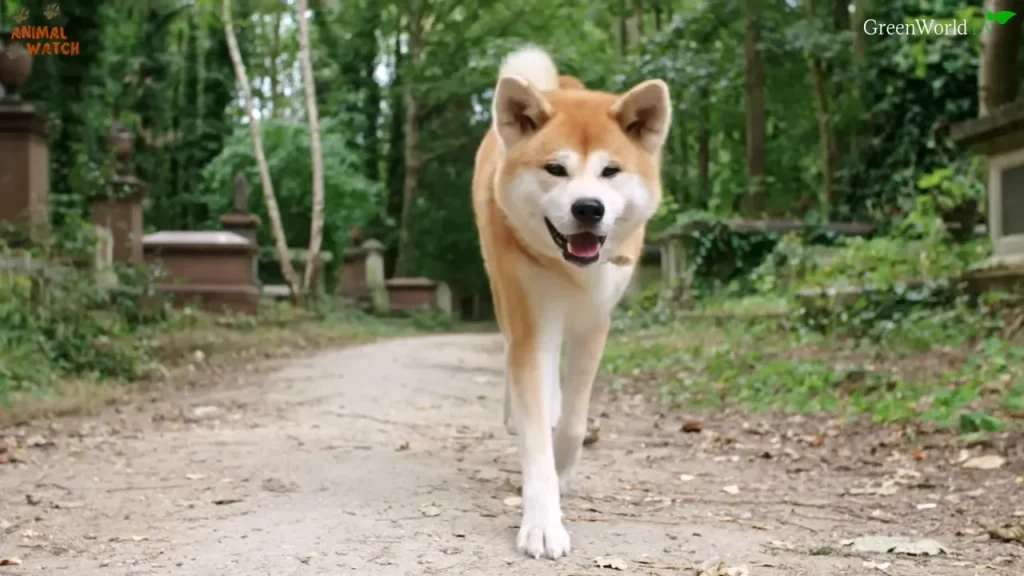
Yes, there are subtle but noticeable differences in temperament.
Robert notes that Japanese Akita Inus often have a more “primitive” outlook.
“If there’s something slightly unusual, you might just get a single bark.”
Their prey drive might be a tad higher too.
Akitas, on the other hand, can be “a little bit more fun-loving” and enjoy cuddles, whereas the Japanese Akita Inu might just “tolerate” affection and then move on.
Interestingly, Robert owns two females, which goes against common advice…
Generally, same-sex Akita households aren’t recommended due to potential for serious conflict.
“Females, sadly, usually [fight] to the death if that happens,” Robert warns.
Once a major fight occurs, there’s often no going back. 💔
⚖️ Size & Coats: Physical Distinctions
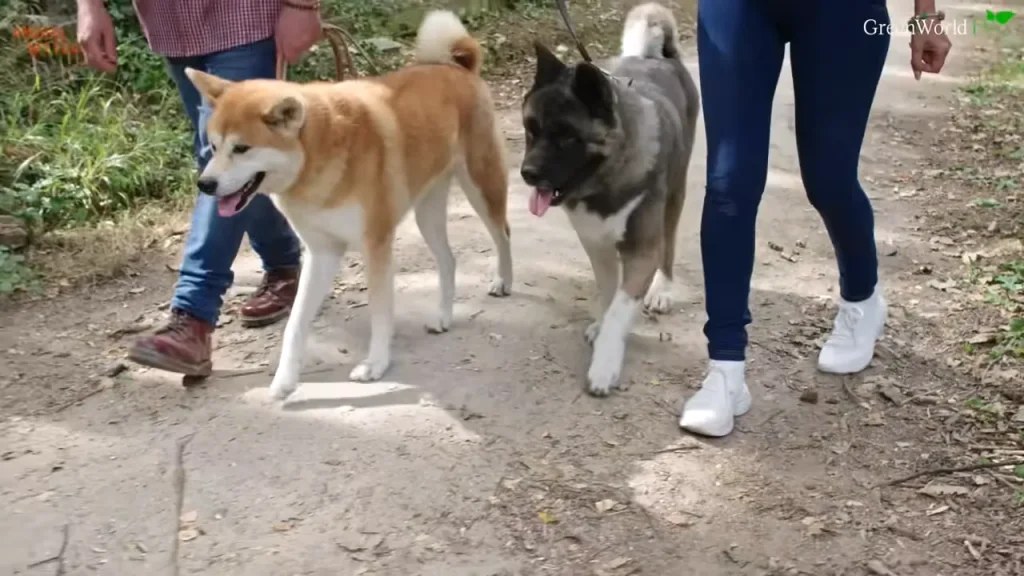
Let’s talk size and coats… Flora, the Akita, weighs around 50 kilograms (about 110 pounds), which is on the higher end for females of her breed.
Kim, the Japanese Akita Inu, weighs “more or less half that really!”
As for their coats, both types have beautiful double coats, offering similar levels of warmth and shedding.
So, while their personalities and sizes differ, their grooming needs are quite alike. 🛁
🌟 Flora: From Show Dog to Real-Life Hero!
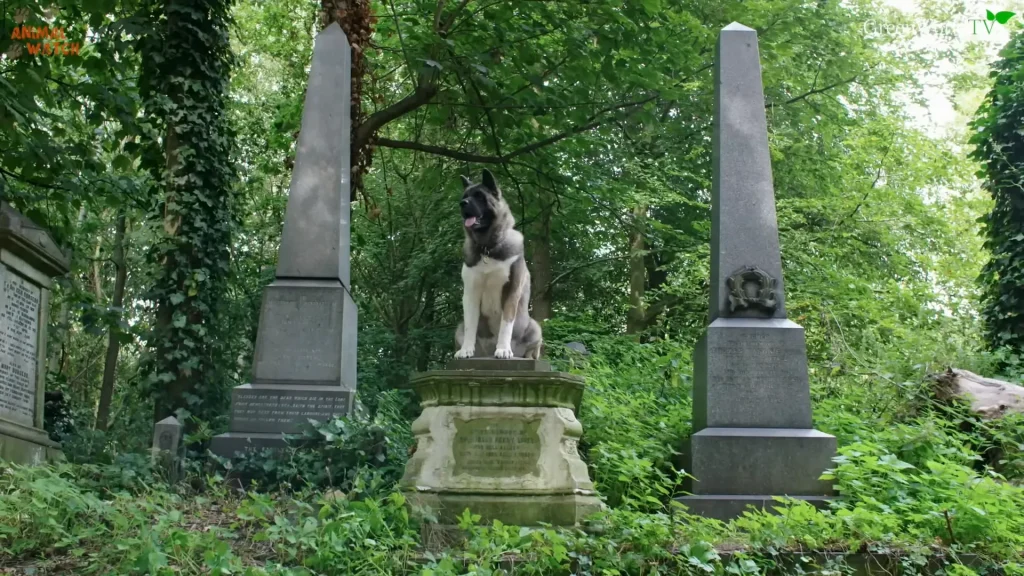
Now for a truly heartwarming story…
Flora isn’t just any Akita; she’s a celebrity! ✨
Robert shares how Flora’s amazing journey began when his previous Akita starred in the musical “Annie.”
Flora followed in her paw prints, even playing Tobias Menzies’ dog in a play!
But Flora’s fame goes beyond the stage…
She has a green plaque, like blue plaques for famous people, but for animals!
Why?
Because Flora is Robert’s assistance dog! 🦸♀️
About 20 years ago, Robert had a car accident that triggered late-onset epilepsy.
He gets no warning before seizures, making daily life challenging.
But Flora changed everything…
When she was just five months old, during Robert’s seizure, he came to and found her lying heavily across his chest, a comforting weight in a scary moment.
Then, Flora started alerting him before seizures!
She’d become agitated, pull on her leash, and mouth his hand – a behavior she knew was usually not allowed.
These alerts were consistently followed by blackouts.
It was Flora’s incredible instinct that allowed her to learn to predict and warn Robert.
She’s since qualified as an assistance dog with Canine Generated Independence, making her truly unique.
Robert believes Flora is the only Akita assistance dog in the UK! 🥇
💖 Every Dog is an Individual: Celebrating Akita Uniqueness
Find out more: https://www.youtube.com/@Animal-Watch
Find out more: https://www.youtube.com/c/annekasvenska
Flora’s story beautifully illustrates that while breed traits exist, every dog is an individual with their own personality and character, shaped by their experiences and surroundings.
Robert sums it up perfectly: “Every dog has its own character and its own personality and also it’s a product of its surroundings.”
And we are privileged to have met Flora and Kim today!
If you loved learning about these beautiful and wonderful Akitas…
Give us a big thumbs up and subscribe for more doggy adventures! 👍

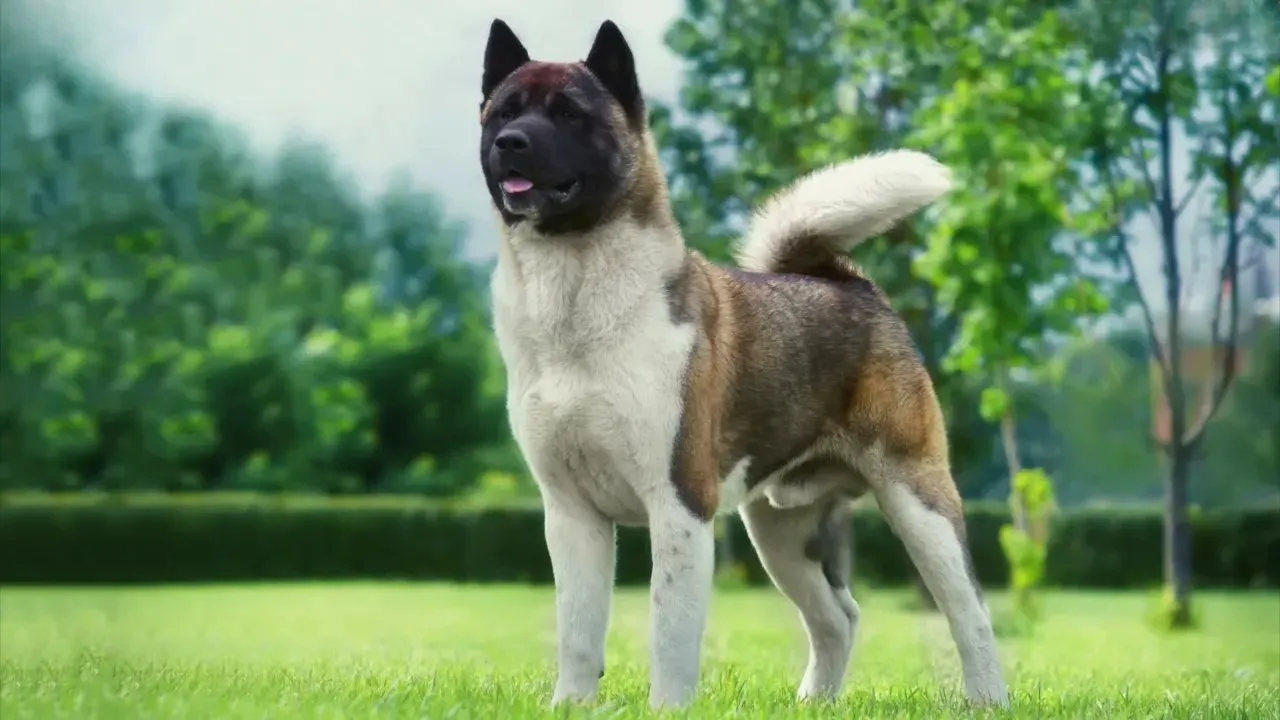
13 responses to “Meet the Majestic Akita: More Than Just a Loyal Face!”
ordering enclomiphene generic release date
enclomiphene fedex without a perscription
achat kamagra generique
kamagra prix washington dc
cheap androxal australia over the counter
get androxal australia generic online
buy cheap flexeril cyclobenzaprine generic buy online
cheapest buy flexeril cyclobenzaprine cheap where
buy dutasteride and cealis online from canada
how to buy dutasteride australia online no prescription
gabapentin fed ex
how to order gabapentin cheap wholesale
how to order fildena canada online order
how to order fildena cost at costco
cheap staxyn australia discount
discount staxyn cheap online in the uk
can you buy itraconazole in mexico
buying itraconazole cost at walmart
online pharmacy usa avodart
avodart without presciption
canada rifaximin non generic
how to order rifaximin usa pharmacy
cheapest buy xifaxan price dubai
buying xifaxan ireland over the counter
kanadský kamagra online
kamagra online bez lékařského předpisu